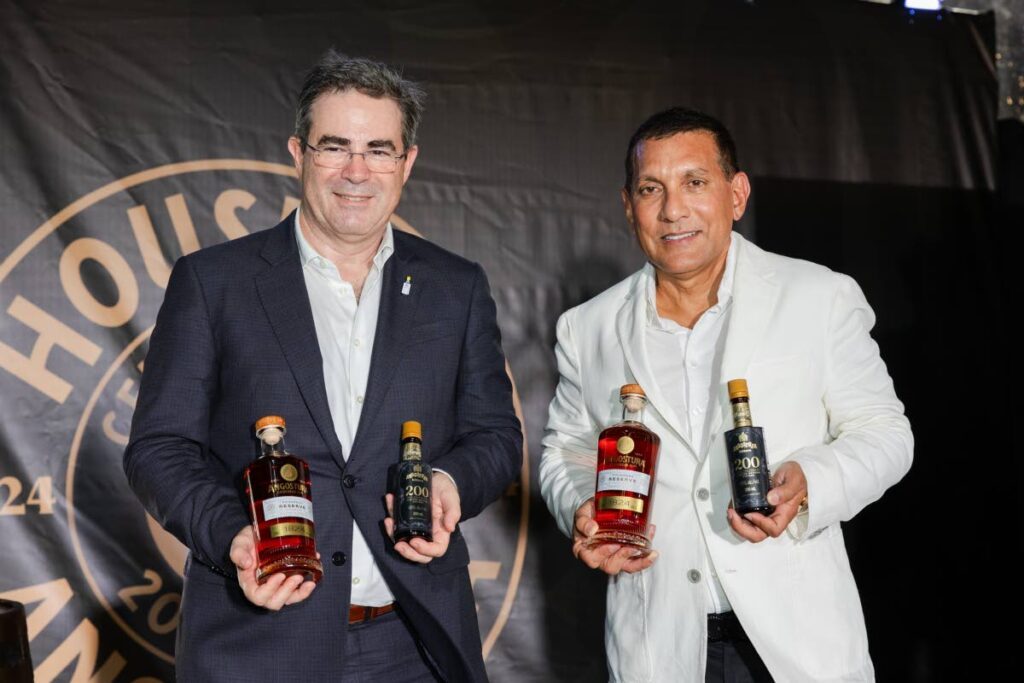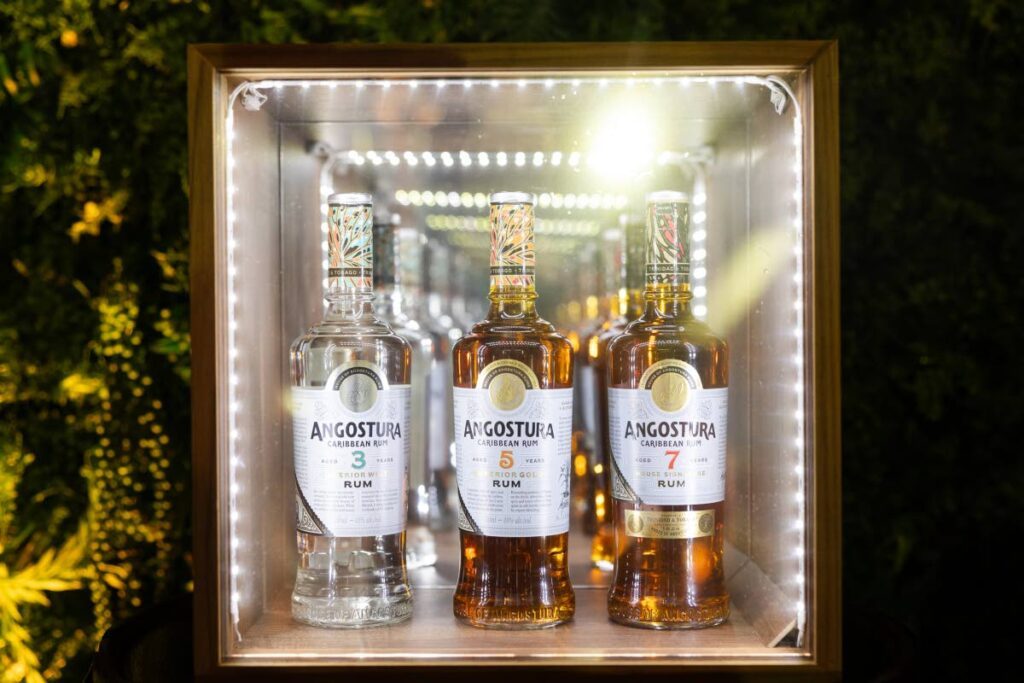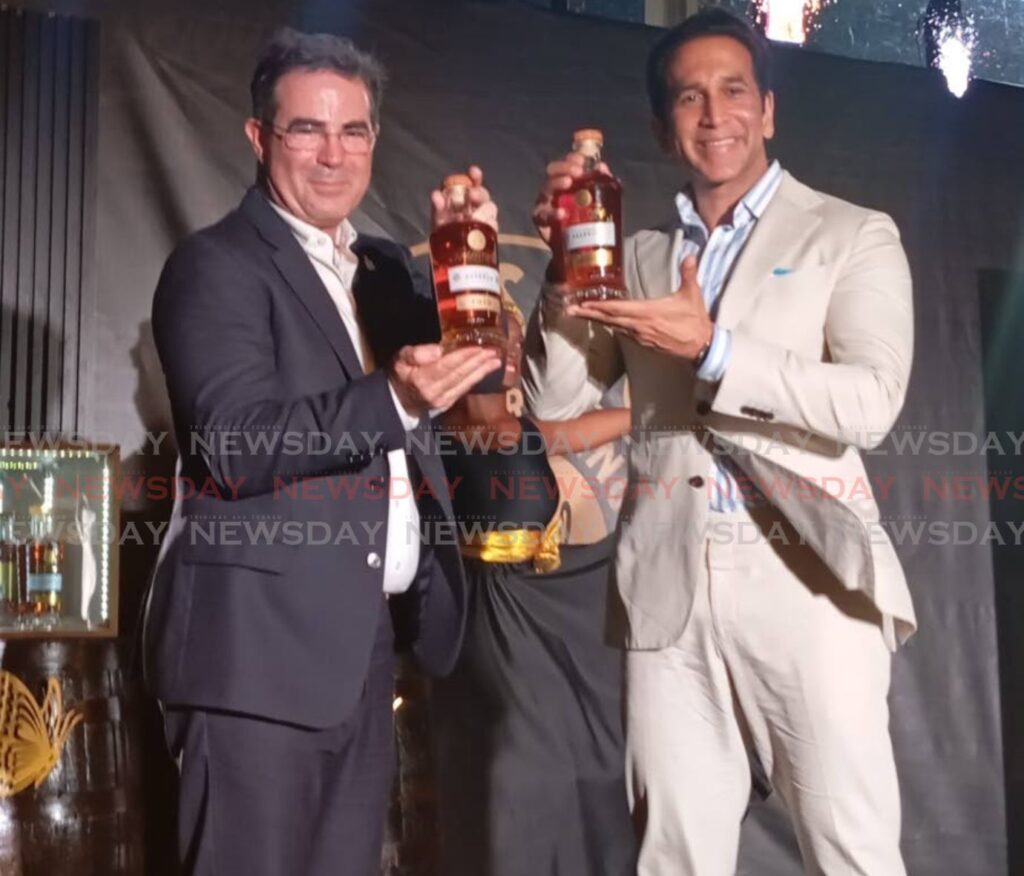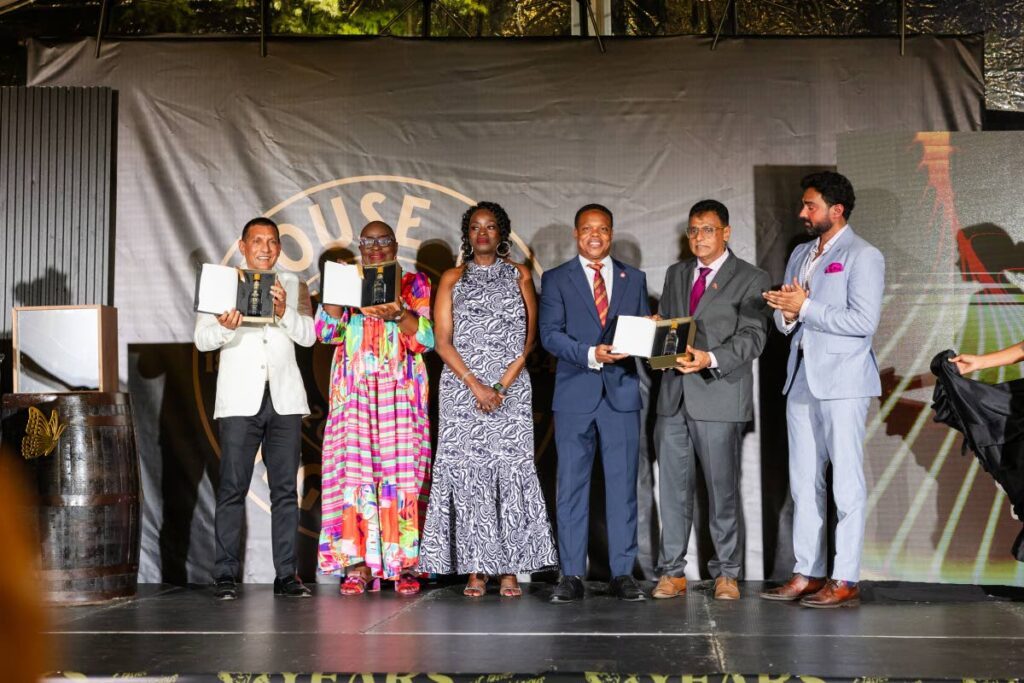Angostura works to meet sustainability goals

A redesigned bottle for its premium rum range and a 200-anniversary limited-edition Angostura Bitters are among the ways Angostura Holdings Ltd celebrated its 200th anniversary.
They are also a wider part of Angostura’s efforts towards environmental sustainability.
The company unveiled these at a celebratory event at Mille Fleurs, Maraval Road, Port of Spain, on April 18.
Angostura aromatic bitters was founded by Dr Johann Siegert in 1824, when he first produced aromatic bitters as a medicinal tincture to alleviate stomach ailments, Angostura's website said.
In a brief ceremony before guests were treated to dinner, Angostura’s chairman Terrence Bharath, SC, said the new bottles were “architecturally designed.”

“The change in the architecture of the bottles has been one of the things that I had in my craw since I was appointed in 2018. I looked at the bottles and I said to them, ‘Listen, we have to get to a point where we remaster these bottles. We have to get these bottles more modern. We have to get these bottles with a cork.’
“We also have the launch of our 200th-anniversary, limited-edition bitters, and it is an absolute work of art that took a long time to create,” he said.
In his remarks, CEO Laurent Schun said the company was using less glass in the packaging of its three, five and seven premium rums to fulfil the rules on sustainability for glass, and the bottles were 30 per cent lighter than previously.
While the company always had plans to redesign its bottles, the actual process happened “quite quickly,” in a year and a half, Bharath said.
In the spirits industry, companies, locally and internationally, had to become compliant with environmental, social and governance (ESG) rules, he added.
“In essence, a major part of a company’s DNA must now be aligned with maintaining the environment around us. I think we are fast recognising that the damage we have done to environment has now come to haunt us…,” he said, referring to the recent Dubai flooding.
For Bharath, ESG meant leaving a place for the next generation that was socially balanced, with proper governance standards and with attempts to repair the environment.
The board deeply recognised the necessity to comply with ESG, he said.
“We are constantly looking at ESG, because it is something that the foreign countries – like yourself, where you live – that much attention is paid to, and companies that lose their way with ESG are often taken off of the supply chain.”
He said the company complies with ESG, as no artificial ingredients are used in its rums or bitters.

“The ingredients in aromatic bitters are natural, and have been for the past 200 years. We don’t add anything to bitters that is unnatural.
“We use molasses in the manufacture of rum, as you know and molasses comes from sugar cane.”
He added that the company also makes its own caramel for colouring and flavouring the alcohol.
Bharath said the company previously held a British royal warrant from the late queen since 1955, but it was invalidated with her death on September 8, 2022. These warrants are acknowledgements that a company supplied goods or services to the royal family.
Angostura was given moratorium period to reapply, he said.
“Our reapplication is now, essentially, a fresh application, and King Charles III has changed the rules significantly. So now he is gung-ho and his team he has put together to determine who gets warrants are all fixated on ESG.
“It requires us to be assured that the principal raw materials to be used in the manufacture of bitters are sourced from suppliers that have employed the principles of ESG into their production.”
The reapplication also required that the label material is sourced from sustainably-managed forests, certified by the Forest Stewardship Council and the closures on the bottles are 100 per cent recyclable, he added.
But adhering to the rules weren’t the company's only efforts at sustainability and environmental preservation.
Bharath said it remodelled its waste-water treatment plant so when it releases into the ecosystem, the wastewater does not damage the environment.
Angostura was also now working on a project that would allow it to use its biogas for electricity.
Its sustainability efforts did not only include the environmental preservation but also encouraging sustainable practices for its farmers, he said.
Angostura’s Cocoa Bitters was created with farmers in mind, he said, and the company insisted that local farmers were used to source the material for it.

“So we have kept the cocoa industry alive in TT, and that is a great accomplishment for the people of TT.”
All of these efforts have seen a growth in the company’s revenue.
“We have crossed $1 billion in 2022 and we have done it again in 2023,” he said.
Angostura's summary consolidated financial statements of December 31 last year said the company reported a profit before tax of $220 million.
The statements said, “Building on last year's historic achievement of surpassing the $1-billion revenue mark, revenues reached $1.05 billion in 2023, growing by $26 million or 2.5 per cent.”
Schun said the company was proud of its progress in sustainability and performance.
He added that 150 million bottles of bitters were sold in the US last year and there was significant growth in South Africa, Uruguay, Netherlands, Lithuania, and Greece, among other countries.
“We are at a pivotal moment in our history. Building on this 200 years of legacy, we want to transform the organisation, reinvent the model to meet the demands of the 21st-century marketplace, to take advantage of opportunities that may not have been fully explored and accelerate the international development in the coming years,” Schun said.
Accelerating the company’s global mission entailed changes, and every part of the process had to be informed of its strategies and visions, he added.
Schun said the success of its bitters was a roadmap for its premium rums.
The premium rum market was valued at $15 billion and was expected to grow at over five per cent per year to reach $24 billion by 2030, he said.
Grandviewresearch.com said, “The global rum market size was valued at US $11.77 billion in 2022 and is expected to grow at a compound annual growth rate (CAGR) of 5.6 per cent from 2023 to 2030.”
While it is a competitive sphere, Schun believes TT’s premium rums are unique as they embody the soul of the people.
Eventually, the company hopes to enter the club of the top-ten most-sold premium rum brands in the world, he said.
Sustainability and legacy were at the heart of the redesign, and the symbol of the butterfly was enhanced as the brand’s symbol, Schun said.
Among those at the event were international distributors who earlier participated in its international distributors' conference at Hyatt Regency; some of the company’s executives; and government ministers Camille Robinson-Regis, Faris Al-Rawi, Dr Amery Browne, Rohan Sinanan, Richie Sookhai and Donna Cox.

Comments
"Angostura works to meet sustainability goals"